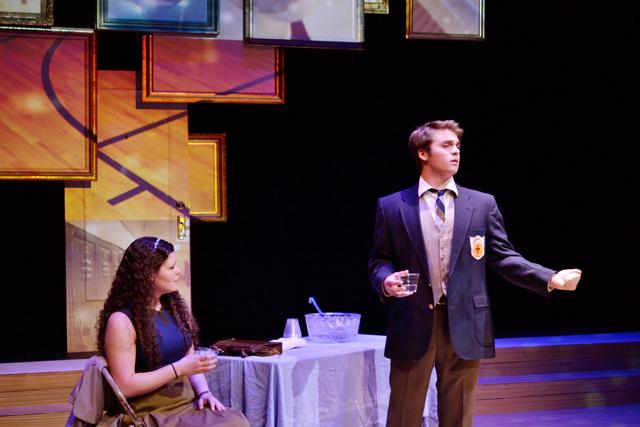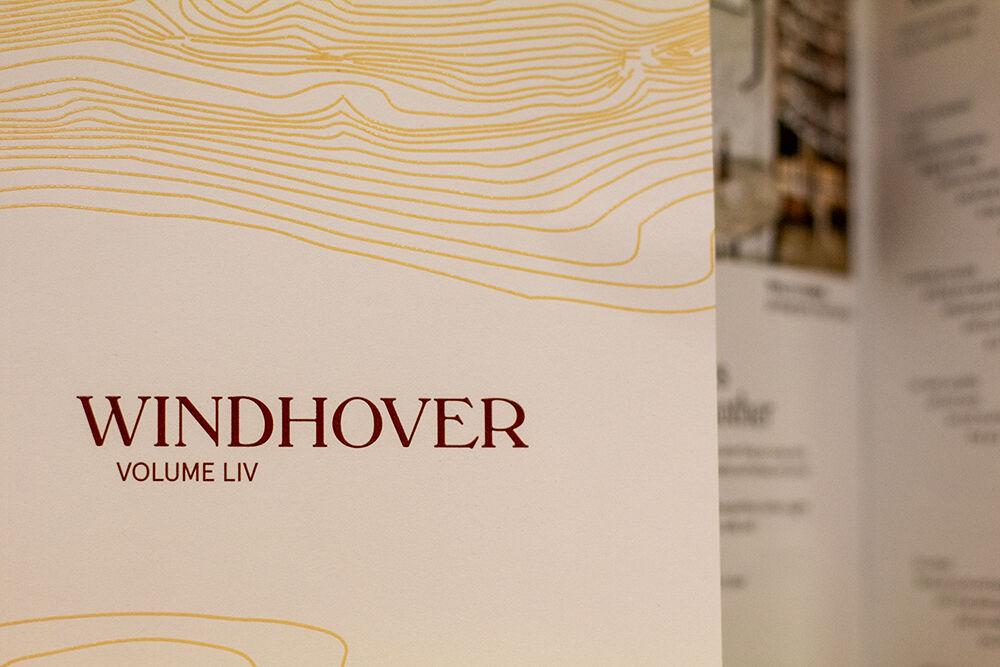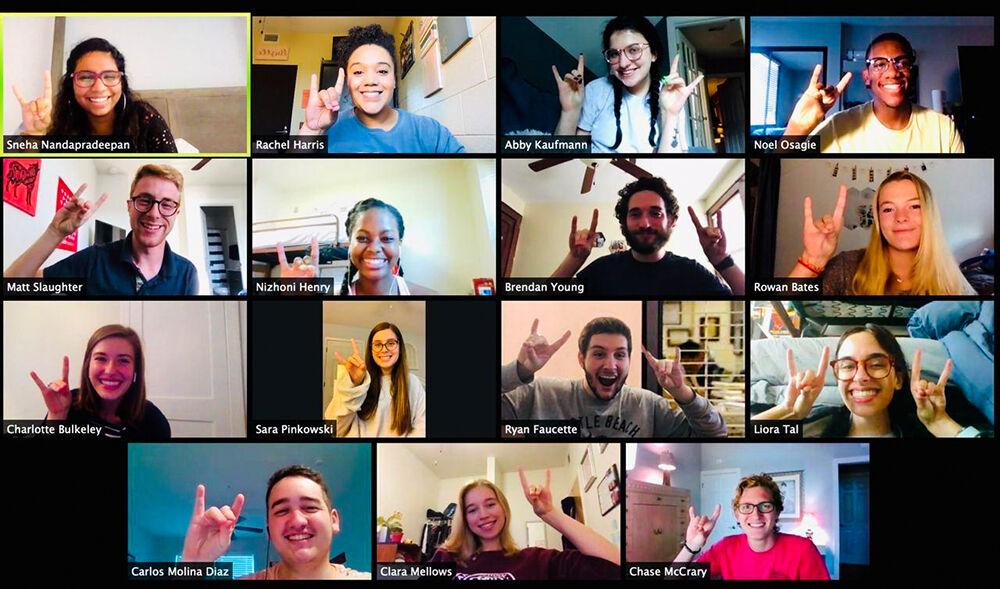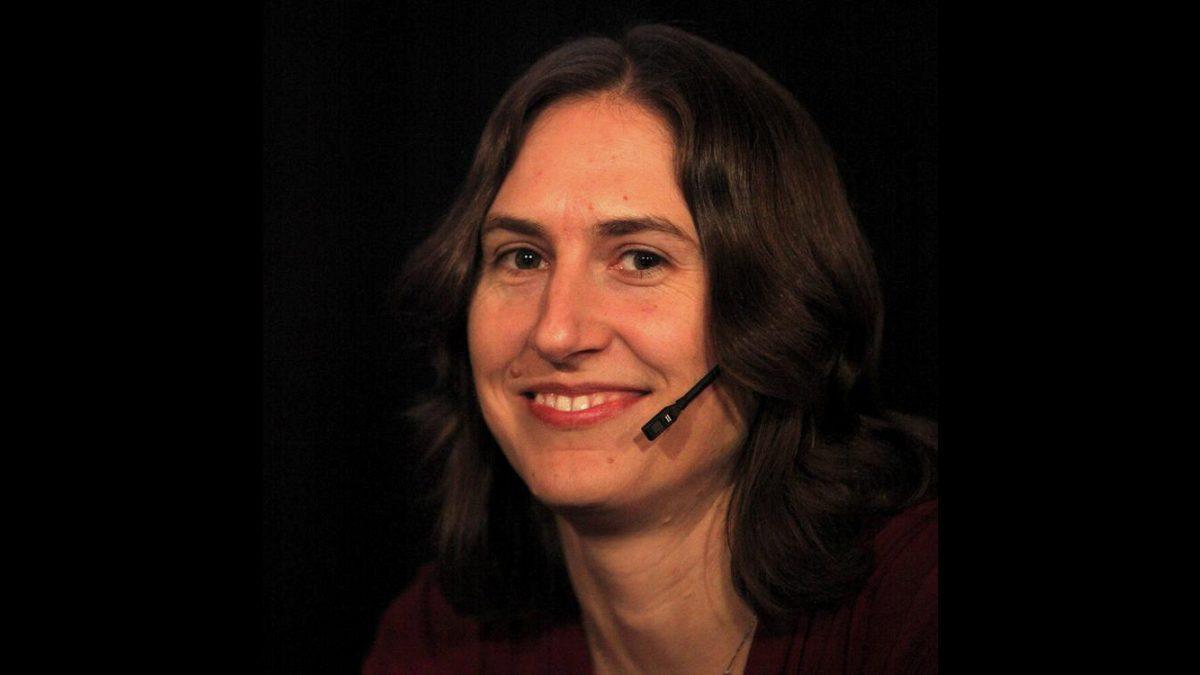In the last show of the season, University Theatre’s production of The Heidi Chronicles is striving to make an impression on audiences.
Running for three weeks and a total of 13 performances, the cast and crew have made the production into a conversation-starter.
The story shadows Heidi Holland as she graduates from high school in the 1960s to her career as a successful art historian more than 20 years later. Though most of the characters are women, there are two important male characters — Peter Patrone, a gay pediatrician, and Scoop Rosenbaum, a magazine editor who has many affairs and with whom Heidi has a complicated friendship.
The play’s main themes deal with the changing roles of women during Heidi’s life. It describes both Heidi’s ardent feminism during the 1970s and her sense of betrayal and isolation during the 1980s.
Diana Quetti, a junior in communication media, plays the title role in University Theatre’s production of The Heidi Chronicles. For Quetti, the character is more than just another role.
“Heidi Holland isn’t like any other character I’ve ever played,” Quetti said. “She’s so real. There’s a huge difference between being in the ensemble for Arabian Nights and portraying someone so relatable.”
The Heidi Chronicles was written by Wendy Wasserstein in 1988, and won the 1989 Pulitzer Prize for Drama. Along with the show, University Theatre hosted a forum to address the themes of feminism and female roles in society. Entitled “Women — where are we going?” the forum explored the past and present experiences and struggles of women, beginning in the height of the women’s movement in the 1960s, as portrayed in The Heidi Chronicles. Topics included workplace inequality and discrimination, discussed by a distinguished panel of women from around the Triangle.
The panel was made up of Allison Bergman, assistant director of University Theatre, Heidi Grappendorf, assistant director for leadership for the Women’s Center, Jan Morgan, a parent coordinator from Old Town Elementary, Lisa Bass, an assistant professor in the College of Education, Janet Rakes, a career counselor in the Poole College of Management, and Deborah Brown, a lecturer in the Poole College of Management.
Leanna Taylor Hall, a senior in business administration and coordinator of the forum, said she was motivated to put together the event because of the female influences around her.
“I chose to host the event to explore the true life experiences of women who have lived and endured the perceived inequalities by our society,” Hall said. “Really, to tell the tale of women who have struggled to find their identities in the process.”
It was Quetti’s performance that kick started the forum, according to Hall.
“Every time I hear [Quetti] perform the ‘Women—where are we going?’ monologue, I am driven to be true to myself, my goals and my values,” Hall said. “Every time I hear her say ‘I thought the point was that we were all in this together,’ I find myself nodding my head with cold chills and feeling that I should keep striving for and expecting a change.”
Quetti said that even though women have come a long way since Heidi’s time, women should always work to grow as valued members of society.
“As women, as people, we should be proud of the progress we’ve made toward equality,” Quetti said. “I want the audience to realize they have the power to make a difference. I want them to learn that obstacles test you but make you stronger.”
Both Hall and Quetti said female progression is a joint endeavor.
“We can support each other as women without conforming to the expectations of others,” Hall said. “The fact that generations of women have faced obstacles, battled discrimination and stood up for themselves … they’ve paved the way for the women of our generation, that we may achieve greatness without the overwhelming battle of scrutiny because of our gender.”
The Heidi Chronicles ran through last Sunday, April 21.














